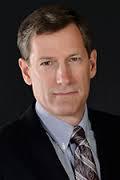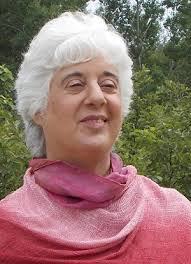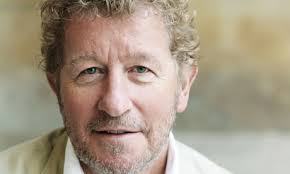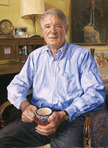William Peace's Blog, page 48
January 18, 2016
Trends in Novel Genres
Chip MacGregor is a “book guy” by his own admission, and he runs the MacGregor Literary Agency. He was asked recently: “Can you tell us the latest trends you’re seeing in fiction?” Here is the (abbreviated) answer from his blog:
Chip MacGregor
The continued growth of romance — particularly historical romance. Let’s face it, last year the publisher who saw the biggest growth was Harlequin, and they did it in a down year for most publishers. Readers in a bad economy like to escape by reading romance novels. You can roll your eyes if you want to, but it’s the truth.
Thrillers aren’t selling like they used to. James Patterson and other bestselling novelists can still move large quantities, but once you move away from the bestselling authors, it’s much slower (and, frankly, much harder to place a new novelist).
There is a renewed interest in Americana, particularly during sunnier days. We’re seeing interest in the Victorian and Edwardian periods, for example (assuming it’s fair to use British terms for American history). That seems to be a trend away from seeing so many wartime sagas — perhaps a reflection on our fatigue with the never-ending war in Iraq.
We’ve seen a lot of growth with fiction that surrounds historical events. Not a retelling of the events, but of stories that touch on history. So, for example, we’re not seeing novels that re-tell the assassination of President Lincoln, but we ARE seeing novels that have to do with people who were in the vicinity, or who knew John Wilkes Booth, or who were at Ford’s Theater, or who were part of the chase to catch the conspirators, etc. Again, not so much focused on the event itself, but on characters who were influenced by the event.
Literary fiction is definitely a growth category in American publishing. Take a look at any bestseller list, and you’ll see a lot of literary fiction. Not only that, but many of the books have a clear spiritual thread — something I don’t see many people recognizing or reporting on.
One of the most-reported growth trends has been in paranormal fiction.
I see mixed signals in the horror category. Some think it’s up; others think it has run its course. I don’t have a firm opinion one way or the other.
Of course there has been huge growth in the Christian/inspirational category over the past 7 or 8 years. The incredible growth has slowed, making some think religious fiction is hurting, but that’s just not true. Christian fiction is still a HUGE category, and there is still growing interest from those houses who were late to jump on board during the heyday. So while, yes, we’re not seeing the big growth in titles that we did a couple years ago, compare the number of titles and the number of genres and sub-genres to what we saw just three years ago.
One of the most visible areas of growth in the inspirational category has been Amish fiction (or “bonnet novels”). Some people have said that it’s going to fade out, but I don’t believe it. I think it has established itself as its own sub-genre. What Bev Lewis started and Cindy Woodsmall followed has turned into its own category of fiction. That sort of thing happens sometimes — consider Louis L’Amour creating the giant interest in westerns, or Edgar Allan Poe basically establishing horror fiction. People are still buying it, so it has clearly found its audience.
He goes on the mention the growth of small presses (including those who specialise only in the production of e-books) and the growth of e-books themselves. He continues: “I don’t think ink-and-paper books are going away any time soon — most every reader still loves printed books. But I’ve got three kids in their 20’s, and all of them are comfortable reading a book on a screen — even an iPhone screen. That tells me when their generation is in charge, the e-book will be a core business, not a side business. It will be a major part of every publishing decision, not simply a sub-rights discussion.
I can comment on two genres mentioned above: thrillers, and spiritual literary fiction. Five of the soon to be seven books I’ve published are in these two categories. The three thrillers I’ve written are all pretty gripping, and realistic. But, I’m beginning to feel ‘been there, done that. Sable Shadow & The Presence is spiritual literary fiction, and it has won eight (minor) awards to date. Writing it and the reaction I’ve had to it have motivated me to (nearly) complete my seventh novel, which has a definite spiritual dimension, and is set in the Middle East. In spite of the fact a tremendous amount to research was required, I greatly enjoyed the experience. I’ll tell you more about it as soon as the publishing contract is signed.


January 15, 2016
What Makes a Best-Selling Novel?
I just stumbled on this article from The Daily Telegraph of 9 January 2014 and written by Matthew Sparkes.
Scientists have developed an algorithm which can analyse a book and predict with 84 per cent accuracy whether or not it will be a commercial success. A technique called statistical stylometry, which mathematically examines the use of words and grammar, was found to be “surprisingly effective” in determining how popular a book would be.
The group of computer scientists from Stony Brook University in New York said that a range of factors determine whether or not a book will enjoy success, including “interestingness”, novelty, style of writing, and how engaging the storyline is, but admit that external factors such as luck can also play a role.
By downloading classic books from the Project Gutenberg (a library of over 50,000 free e-books) archive they were able to analyse texts with their algorithm and compare its predictions to historical information on the success of the work. Everything from science fiction to classic literature and poetry was included. It was found that the predictions matched the actual popularity of the book 84 per cent of the time. They found several trends that were often found in successful books, including heavy use of conjunctions such as “and” and “but” and large numbers of nouns and adjectives.
Less successful work tended to include more verbs and adverbs and relied on words that explicitly describe actions and emotions such as “wanted”, “took” or “promised”, while more successful books favoured verbs that describe thought processes such as “recognised” or “remembered”. To find “less successful” books for their tests, the researchers scoured Amazon for low-ranking books in terms of sales. They also included Dan Brown’s The Lost Symbol, despite its commercial success, because of “negative critiques it had attracted from media”.
“Predicting the success of literary works poses a massive dilemma for publishers and aspiring writers alike,” said Assistant Professor Yejin Choi, one of the authors of the paper published by the Association if Computational Linguistics. To the best of our knowledge, our work is the first that provides quantitative insights into the connection between the writing style and the success of literary works. Previous work has attempted to gain insights into the ‘secret recipe’ of successful books. But most of these studies were qualitative, based on a dozen books, and focused primarily on high-level content – the personalities of protagonists and antagonists and the plots. Our work examines a considerably larger collection – 800 books – over multiple genres, providing insights into lexical, syntactic, and discourse patterns that characterise the writing styles commonly shared among the successful literature.”
What I find surprising about this study is statistical correlation between ‘writing style’ and popularity. Eighty-four percent is a strong correlation! Conjunctions tend to keep the action moving, hence their frequent use. We’ve heard for some time that the use of adverbs is to be avoided, and that it is far better to choose a more accurate and descriptive verb. The frequent use of adjectives makes sense; after all we’re trying to paint a picture in the reader’s mind, and well-chosen adjectives will improve the clarity of the picture. It is interesting that verbs which convey action or emotion are less successful than verbs which convey thought processes. Perhaps this is because it is easier for a reader to ‘tune in’ to thought processes than it is for him or her to feel the action or the emotion. Is the corollary of this proposition a finding that thoughtful characters are more popular than active or emotional characters? No. I think this would be carrying the thought process too far.
It would be interesting if the algorithm were able to spot clichés or commonly used phrases, because these are thought to be a real turn-off for readers.
What do you think?
January 8, 2016
Payments to Authors
There was an interesting article in The Daily Telegraph two days ago about the payments authors receive from the publishers of e-books, as follows:
“Professional writers could become and ‘endangered species’ unless publishers start paying them properly for e-books, the Society of Authors has warned. The society said lovers of literature would soon be left with less and less quality content. In an open letter to publishers, the society called on executives to treat authors more fairly, drawing up less punishing contracts and paying them more. Research has shown that the median income of British authors is £11,000, which the society argues is far below the ‘level deemed necessary for a socially acceptable living standard’. Nicola Solomon, the society’s chief executive said: ‘Unless publishers treat their authors more equitably, the decline in the number of full-time writers could have serious implications for the breadth and quality of content that drives the economic success and cultural reputation of our creative industries’. The society calls on publishers to give authors ‘at least 50%’ of revenue from their e-books, as opposed to a ‘mere 25%’, and not to ‘discriminate’ against writers who do not have powerful agents.”
If I look at the 100 Kindle edition paid best sellers on Amazon, the top price is $14.99 (3 books), and the cheapest books were $0.99 (20 books). There is another list of the 100 Kindle edition free best sellers. The books selling at very low prices are there because their authors are trying to promote them into best sellers. This way the author gets ‘fame’ if not fortune. But if one looks at the best authors, the prices seem to start at $8.99. There are five J K Rowling books for sale at $8.99. So, it’s fair to note that authors have some control over the price at which their books are sold as e-books, and, presumably, also some control over their level of royalties.
The problem, it seems to me, is for the relatively unknown author who is trying to make a living from writing good, serious literature. Let’s say s/he can persuade the publisher to sell his/her e-book at $6.99, with a 25% commission. If so, s/he will earn $1.75 a copy, and to make £11,000 per year, s/he has to sell 9,400 copies per year. This will put his/her book on somebody’s best seller list. The point is that it is very difficult for a good, serious writer to make a living selling e-books, unless s/he has a best seller. So, I think the Society of Authors has a point.
What can be done by whom? I think it’s pretty unlikely that the publishers will all agree to raise their prices enough to give their authors 50% of the price. They’ll be afraid of losing volume. Besides, there’s plenty of margin for the publisher in an $8.99 e-book. Production costs are far less than a dollar, so their major expenses are corporate overheads, author royalties, and advertising, over which they have control. It’s even less likely that an ‘author’s union’ will be able to force through price increases.
But I think that once an author and a publisher have reached a basic deal to publish hard copies, there’s room for negotiation on the price of the e-book. This negotiation would recognise the author’s per copy royalty on hard copies, the publishers costs, volume assumptions, and the sensible price differential between hard copies and e-copies from a user’s point of view. For example, if the hard copy is selling for $17.50, and a Kindle fanatic wants the book, why wouldn’t s/he pay $12 for it, so that the author gets $4 per copy and the publisher gets $8?


December 30, 2015
2015 in review
The WordPress.com stats helper monkeys prepared a 2015 annual report for this blog.
Here’s an excerpt:
A San Francisco cable car holds 60 people. This blog was viewed about 1,500 times in 2015. If it were a cable car, it would take about 25 trips to carry that many people.
Click here to see the complete report.


December 27, 2015
Editing by the Author
I used to believe that the only editing I, as an author, had to do was to scan each piece of text five times: check for typos, punctuation, spelling, and was it saying what I wanted to say
When I had finished a sentence
When I had finished a paragraph
When I had finished writing for the day – usually 2-3 pages
Re-read the entire chapter
Re-read the entire novel
At the end of step five, I would turn the completed text over to a professional editor who would spot additional typos, spelling and punctuation errors, and who might also raise some questions about characters or events.
But with my latest novel, I find that these five steps are not enough. After completing the final chapter and before step five, I have found it necessary to review each chapter, from the beginning, in detail, again. Why is this necessary? When I finished the last chapter, I had some concerns about what I had written before:
Was each character developed consistently, and in keeping with his/her role in the story? For example, the credibility of one character depends on the reader believing that he has a high level of curiosity. Was this curiosity trait well enough developed?
Was the setting described so that it was both clear and credible without being be-labored? This was important because the entire novel (except for part of one chapter) is set in the Middle East, and all the characters speak Arabic as their mother tongue. Would a Western reader lose sight of the setting, and therefore miss the cultural dimension of the story?
Were the events in the novel supportive of the themes – the messages – which I’m trying to convey? I have to check both the events and the characters’ reactions to them to be sure that what was happening wasn’t superfluous and was leaving the reader with the right impression.
The way I am going about this chapter-by-chapter review is to begin with a critical re-read. I’ve made mental notes to add a paragraph here to include a piece of history about a character, or to change an event so that it contributes more effectively to the message. As I read, I find typos, and language that is too ordinary, or does not leave a clear unique impression. I find unnecessary phrases and pieces of dialogue. I also find mistakes. For example, in chapter 2, a peripheral character has three children, but in chapter twelve she has two. I’ll go through each chapter at least three times before I have taken care of all the big issues and the little ‘niggles’ I’ve found. As I re-read and re-write, I’m constantly asking: does this feel like the Middle East? This detailed review has to be done with all pride of authorship set aside. I have to pretend that I am a very senior, experienced editor working with a red pencil on the work of a talented young author. It is a time-consuming process, and it can take two or three days to complete a twelve page (single-spaced) chapter. But it is also challenging, mostly enjoyable and ultimately satisfying.


December 19, 2015
Review: Classical Arabic Philosophy
I bought this book as a resource. My latest novel has, as its principle character, a professor of philosophy at a prestigious Egyptian university. I wanted to be able to refer to actual teachings of classical Arabic philosophy in his interactions with students and to use some of the philosophical discussions to help make some of the conclusions in the novel. In these two respects, the book was an excellent resource. I could have the professor discuss the teachings of a particular ancient philosopher with a student, quoting the philosopher by name, dates of birth and death, place of origin, philosophical interests, and exactly what he had written. I could also use what a philosopher had written to establish a point I wanted to make in the novel.
The book has a useful index of key words, both in English and Arabic. The text, however is largely in English. It also has, for the serious reader, clarifying footnotes, and an extensive bibliography. The preface will acquaint the reader with the methodology used by the authors in the selection and translation of the material. The introduction gives the background of the classical Arabic philosophy, which is – to a large extent – derived from Greek, particularly Aristolean, philosophy. What I found of particular interest was that the first prominent Arabic philosophers appeared barely two hundred years after the founding of Islam in 622 AD – well before their Western counterparts. While Greek philosophy provided a foundation, there were philosophical debates within Islam which also provided grist for the mill.
The book includes translations of selected, verbatum writings of a dozen philosophers who lived between the 9th and 13th centuries AD. Subjects of discussion for the Arabic philosophers included physics (motion, force, change, etc.); metaphysics (being, knowing, identity, time and space); theology (God, the soul, eternity). The language used by the Arabic philosophers can be quite turgid and difficult to follow. I suspect this was more the convention of the era than a fault in the translation. Also, the use of logical conventions, which appeared in the West later, were not available at the time to structure a clear proof of a theory.
This is not a book that one would want to read for pleasure unless one were a practicing philosopher. It could serve as a text book in the teaching of philosophy. And it is an excellent reference work.


December 12, 2015
11 Smart Tips for Brilliant Writing
This article appears on the Copyblogger website and was written by Dean Rieck. He is “Copywriter and Consultant for Direct Mail and Direct Marketing”
Dean Rieck
I agree with much of what he says about “brilliant writing”, but not all. Perhaps our divergences are mostly about differences in perspective: advertising copywriter vs author. His blog says:
“Here are 11 ways you can start sounding brilliant:
1. Have something to say
This makes writing easier and faster. When you have nothing to say, you are forced to write sentences that sound meaningful but deliver nothing. Read widely. Take notes. Choose your subjects wisely. Then share your information with readers.
2. Be specific
Consider two sentences:
I grow lots of flowers in my back yard
I grow 34 varieties of flowers in my back yard, including pink coneflowers, purple asters, yellow daylilies, Shasta daisies, and climbing clematisWhich is more interesting? Which helps you see my back yard?
3. Choose simple words
Write use instead of utilize, near instead of close proximity, help instead of facilitate, for instead of in the amount of, start instead of commence. Use longer words only if your meaning is so specific no other words will do.
4. Write short sentences
You should keep sentences short for the same reason you keep paragraphs short: they’re easier to read and understand. Each sentence should have one simple thought. More than that creates complexity and invites confusion.
5. Use the active voice
In English, readers prefer the SVO sentence sequence: Subject, Verb, Object. This is the active voice.
For example:
Passive sentences bore people.
When you reverse the active sequence, you have the OVS or passive sequence: Object, Verb, Subject.
For example:
People are bored by passive sentences.
You can’t always use the active voice, but most writers should use it more often.
6. Keep paragraphs short
Look at any newspaper and notice the short paragraphs. That’s done to make reading easier, because our brains take in information better when it’s broken into small chunks. In academic writing, each paragraph develops one idea and often includes many sentences. But in casual, everyday writing, the style is less formal and paragraphs may be as short as a single sentence or even a single word.
7. Eliminate fluff words
Qualifying words, such as very, little, and rather, add nothing to your meaning and suck the life out of your sentences.
For example:
It is very important to basically avoid fluff words because they are rather empty and sometimes a little distracting.
Mark Twain suggested that you should “Substitute damn every time you’re inclined to write very; your editor will delete it and the writing will be just as it should be.”
8. Don’t ramble
Rambling is a big problem for many writers. Not as big as some other problems, such as affordable health insurance or the Middle East, which has been a problem for many decades because of disputes over territory. Speaking of which, the word “territory” has an interesting word origin from terra, meaning earth.
But the point is, don’t ramble.
9. Don’t be redundant or repeat yourself
Also, don’t keep writing the same thing over and over and over. In other words, say something once rather than several times. Because when you repeat yourself or keep writing the same thing, your readers go to sleep.
10. Don’t over write
This is a symptom of having too little to say or too much ego. Put your reader first. Put yourself in the background. Focus on the message.
11. Edit ruthlessly
Shorten, delete, and rewrite anything that does not add to the meaning. It’s okay to write in a casual style, but don’t inject extra words without good reason. To make this easier, break your writing into three steps: 1) Write the entire text. 2) Set your text aside for a few hours or days. 3) Return to your text fresh and edit.
None of us can ever be perfect writers, and no one expects us to be. However, we can all improve our style and sound smarter by following these tips and writing naturally.”
I agree with 1, 2, 7, 8, 9, 10, and 11.
3. Choose simple words:
Use of simple words is probably fine for advertising where clarity and conciseness are essential. But when writing fiction, and when one is trying to paint a complex picture of fact, feelings and suppositions, simple words are rarely fully effective. Maybe an unlikely combination of two or three special words is necessary to convey the mixture of fact and feelings.
4. Write short sentences:
Here again, punchiness isn’t necessarily what we want. Short sentences can lack lyricism or intellectual interest. They can be boring if repeated. Use of some longer sentences can keep the reader interested.
5. Use the active voice:
OK, but switch now and then to keep the reader alert.
6. Keep paragraphs short:
I believe that paragraphs should be used as a clue to the reader that the action is changing: different time, different setting, different characters. There is no other reason to break up the text other than that a paragraph longer than one page can make it feel to the reader that the reading is becoming laborious!


December 4, 2015
Imitation Is Much More Than Flattery
An article with this title appears in the December issue of The Florida Writer. It is written by Barbara Baig who is writer and veteran writing teacher. The article begins: “The word imitation makes many aspiring writers nervous. If they have spent any time in the academic world, then the word imitation will probably remind them of plagiarism, a crime punishable (when discovered) by lowered grades or even expulsion. Everywhere in the writing world – especially in blogs – beginning writers are advised that their work, their story, their writing voice must be unique, entirely their own. For some this message reverberates so loudly that they refuse even to read other writers, for fear of being denounced as “imitative”.
Barbara Baig
At first, I thought this would be an article differentiating between imitation and plagiarism, but this was not the case. Ms Baig suggests to aspiring writers that they should collect, analyze and practice small bits of writing that capture their admiration. She says, “Imitation comes into its own when we use it, not to produce a finished piece of work, but to learn and develop skills. The writers we love give us models of the kind of writing we’d like to be able to do. Many aspiring writers read their favourites, sigh and say to themselves, I wish I could write like that!
“Say, for instance, that you love the kinds of words your favourite writer uses. You can pull some of these words out into a notebook and examine them. Are they concrete, sensory words? What sense or senses are they speaking to? Do you like some combination of sounds in a word or group of words? Take note of what you think is good about these words, then practice collecting some just like them.
“Now select some of these words and put them into sentences. These sentences will be somewhat imitative of the originals, true, but it doesn’t matter because they are just practice sentences. The practice is training your mind to choose certain kinds of words, to tune it to particular qualities or sounds that please you. . . . The sentences you write then will not be imitative, but they will be of higher quality than those you might have written previously, because practice has educated your writer’s mind and ear to new possibilities.
“The same thing is true for sentences.” (And the article goes on from there.)
I think this is pretty good advice, though a little labourious, and if one focuses on one particular writer, the result may be more like imitation than a unique voice.
With rare exceptions, I try not to read two works by the same writer, preferring to sample the enormous world of talent that’s out there. As I’ve said before, I don’t necessarily read only popular works with good reviews. Obscure works with good reviews can be quite interesting, and even if I conclude that the reviewer was overly generous, I will, hopefully, have identified some places where the writer fell down.
When I’m writing, I’ve learned to set an alarm bell to ring when I produce an ordinary, bland piece of text. That piece has to be re-written so that it is both interesting and carries – in a unique way, if possible – the exact message I want the reader to understand. You won’t be surprised to hear that I make frequent use of my thesaurus. Sometimes a slightly unfamiliar word, in combination with others, in a particular context, conveys perfectly the sense that I want.
When I read, I try to keep my ‘writer’s antennae’ active: how real is that dialogue? can I imagine, readily, the description of that place? does the character seem unique? is that piece of text really necessary? how is this moving things forward? And so on.


November 20, 2015
How do you know if you’re a good writer?
Last month, there was an article in the online Huffington Post by Brook Warner, with the subtitle: “3 Ways to Get Validation of Your Writing’. I agree with most of what she says:
“Writing stands out to me as the craft that people most easily dismiss and judge. Because of its accessibility – anyone can do it and everyone seems to be doing it – writing is to the arts what running is to sports. There are elites and there are hobbyists. Unlike music, art and film, there’s a low barrier to entry. You don’t need an instrument other than your hand, a canvas other than a piece of paper; not do you need a team, a budget, or outsider talent to practice your craft. Everyone thinks they can do it, and the truth is that a lot of people do it well. One of the great difficulties publishing faces right now is that there are many, many good books worthy of being published, but rather than finding ways to celebrate hobbyists and emerging talent (which is what’s happening in film), the industry has instead turned its back and turned up its nose at the very people who make possible what they do for a living: aspiring authors.
“So how, given this climate where the odds for success are stacked against you, the industry itself has no vested interest in you until you prove yourself a talent, and everyone thinks they can write, how are you supposed to know whether what you’re writing is worthwhile?”
She mentions three places to start:
1. Get a professional opinion
“You have to pay for this, but it’s worthwhile to get your work assessed at some point in your writing process, sooner rather than later. This is a high level opinion from someone who knows good writing. People who read for a living are qualified to pick apart your work and tell you what’s working and not working. . . . Your family and friends are not good readers for your work. While all readers are subjective, family and friends are the most subjective. . . .”
She mentions that her company She Writes Press offers an assessment of 25 pages of an author’s work. But apparently, this is part of an expensive co-operative-publishing package. I think it can be money well invested if one selects a real professional reviewer.
2. Submit your work to contests and at conferences
“Judges of literary of literary contests are selected because they are readers. They love good books and good writing, and they have wisdom and expertise to impart. Contests are valuable not just for the accolades you might get, but for the feedback. It’s a cheap way to see what a stranger thinks of your work. . . .”
In my experience, one doesn’t get good quality feedback from most contests. There tends to be cursory and superficial, or non-existent feedback. What I have found to be useful is the ‘batting average’ one gets from submitting a particular work to multiple contests. I have entered Sable Shadow & The Presence in about ten contests. It has won eight awards ranging from honourable mention (2) to runner up (2) to winner (4) of the fiction category. I must be doing something right, and this is consistent with my own view that Sable Shadows is a serious, quality piece of work.
3. Submit your work to an agent or publisher
“Many writers I know are so eager to pitch agents and editors that they go out too early, before their books or proposals are fully cooked. But if you’re suffering from a need to know whether there’s any merit to your project, I believe (though some may disagree with me) that it doesn’t hurt to send to a handful of agents or editors (not both at the same time) to test the waters. . . .”
I have done this with all six of my published books, but I’m still using my original publisher. The amount of feedback I have received has been is essentially zero. It should be said, however, that there is a skill in approaching an agent, as I have learned from reading the 2015 Guide to Literary Agents. A considerable amount of effort is required to produce a winning proposal.
Ms Warner poses another question at the close of her blog: “How do I know if I’m done?” Her point is that if you’re a serious writer, you’re never done. You keep on learning and writing with greater skill. I agree completely.
I think I would be inclined to add a fourth item: Read and Write Book Reviews. I find that reading good quality, recommended books, exposes me to the diverse techniques and skills of other authors. And when I require myself to write a review of the book, I force myself to identify what I admired about the writing and what I felt didn’t work.


November 14, 2015
Review: Where My Heart Used to Beat
Christian Faulks’ new novel is the story of a male psychologist, Robert, told in the first person.
Sebastian Faulks
Robert is a middle-aged and living alone with his dog. There is a girl friend who ditches him for incongruous reasons. His social life seems rather awkward, and his practice somewhat neglected. Robert was two when his father was killed in the First World War; he was brought up by his mother in rural England in constrained financial circumstances. Robert, however, was a good student: selected for grammar school, and able to get a place at a good university, he joined a partnership with others psychologists who ran a care home for people with severe psychological problems.
He receives a letter from an aging army colleague, Pereira, of his father’s who lives in the south of France and who promises information about his father, as well as the opportunity to manage some psychological intellectual property. Having accepted Pereira’s invitation to go to his house on an island in the Mediterranean, Robert discloses much of his history. He joined the army in the Second World War and fought in North Africa, later in Italy. His experiences in Italy are told in graphic detail. They left a lasting impression on him. While he is on medical leave recovering from a serious wound, Robert meets an Italian girl, Luisa, and the two fall hopelessly in love. However, the two are separated when Robert is called back to duty. He later learns that the Italian girl has gone back to her husband.
We are brought back to the present (1970’s), and Robert is sought out by the brother-in-law of Luisa. Luisa is very ill and wants to see Robert again. They meet again, but I won’t give away the ending of the story.
Where My Heart Used to Beat is a solemn, somewhat pessimistic story, and one of the themes of the novel has to do with the extent to which we have choices in life. Nonetheless, I found it hard to put down. One is torn between sympathy for the difficulties Robert faces, and frustration that he does not make better choices for himself. Faulks does an excellent job building Robert into an understandable, complex character. We are aware of his thoughts and feelings as well as his actions. Some of the psychological sub-themes didn’t work for me: for example, Robert has a theory that some severe mental illnesses have cellular causes. The arguments for the theory were rather obscure and I failed to see the relevance of the theory to the novel. Unless it is that our choices is life are limited by the cells in our brains, but, as I say, this didn’t work for me. What did work was the picture of a tragic life that could have been less tragic. The story of that life is beautifully written, and attention-capturing. Most of the events in that life are rather extraordinary. This, I think, makes it more difficult to draw general (ordinary) conclusions from it.













